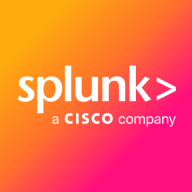

Splunk Enterprise Security and Seq are competing in security management and event logging. Splunk holds an advantage with its comprehensive features appealing to larger enterprises, while Seq's simplicity and direct approach offer efficiency.
Features: Splunk Enterprise Security is known for its comprehensive analytics, customizable dashboards, and extensive threat intelligence. It offers behavior analytics for in-depth security assessments. Seq excels in streamlined logging with a focus on structured data, offering real-time log processing and powerful querying capabilities. It emphasizes clear data visualization and faster incident response.
Ease of Deployment and Customer Service: Deploying Splunk Enterprise Security can be complex due to its broad configuration options but is supported by detailed documentation and resources. Seq offers straightforward deployment with an intuitive setup process, minimizing configuration time and effort.
Pricing and ROI: Splunk Enterprise Security involves higher upfront costs justified by its vast feature set and scalability, suitable for larger organizations. Seq provides a cost-effective solution, leading to faster ROI for businesses prioritizing straightforward logging capabilities. These pricing differences highlight Splunk's investment in feature richness, while Seq offers a budget-friendly option with quick adoption benefits.
| Product | Market Share (%) |
|---|---|
| Splunk Enterprise Security | 6.9% |
| Seq | 1.0% |
| Other | 92.1% |
| Company Size | Count |
|---|---|
| Small Business | 110 |
| Midsize Enterprise | 50 |
| Large Enterprise | 266 |
Seq is a log storage, analysis, and monitoring tool that is highly praised for its efficient, intuitive interface and powerful search capabilities.
It can handle large volumes of logs and integrates seamlessly with platforms such as .NET and Docker. Its valuable features include customizable dashboards, efficient error analysis and debugging tools, and seamless integration with programming languages and frameworks.
Seq is scalable, performs well, and supports collaboration and team workflows.
Splunk Enterprise Security delivers powerful log management, rapid searches, and intuitive dashboards, enhancing real-time analytics and security measures. Its advanced machine learning and wide system compatibility streamline threat detection and incident response across diverse IT environments.
Splunk Enterprise Security stands out in security operations with robust features like comprehensive threat intelligence and seamless data integration. Its real-time analytics and customizable queries enable proactive threat analysis and efficient incident response. Integration with multiple third-party feeds allows detailed threat correlation and streamlined data visualization. Users find the intuitive UI and broad compatibility support efficient threat detection while reducing false positives. Despite its strengths, areas such as visualization capabilities and integration processes with cloud environments need enhancement. Users face a high learning curve, and improvements in automation, AI, documentation, and training are desired to maximize its potential.
What Are the Key Features of Splunk Enterprise Security?In specific industries like finance and healthcare, Splunk Enterprise Security is instrumental for log aggregation, SIEM functionalities, and compliance monitoring. Companies leverage its capabilities for proactive threat analysis and response, ensuring comprehensive security monitoring and integration with various tools for heightened operational intelligence.
We monitor all Log Management reviews to prevent fraudulent reviews and keep review quality high. We do not post reviews by company employees or direct competitors. We validate each review for authenticity via cross-reference with LinkedIn, and personal follow-up with the reviewer when necessary.